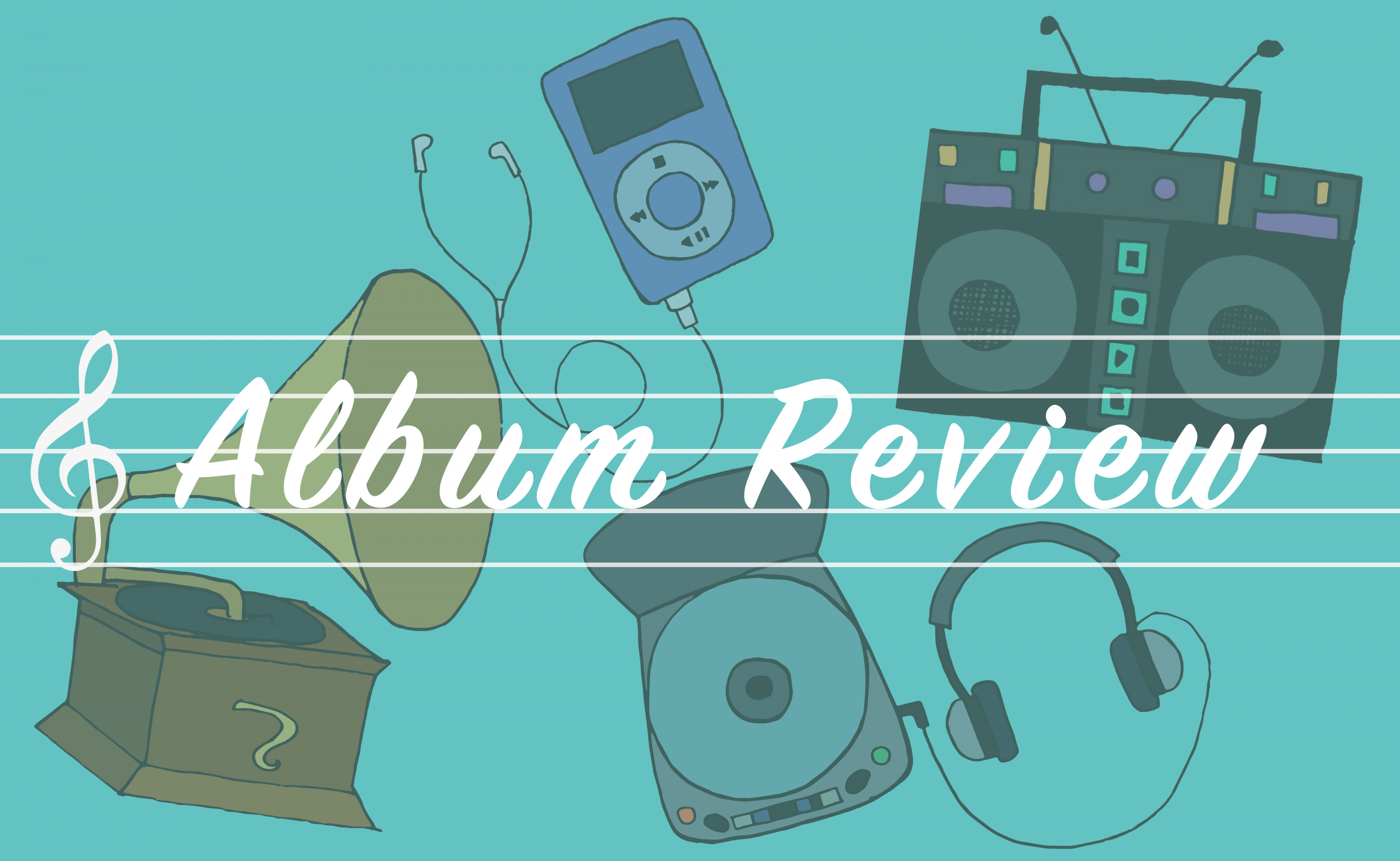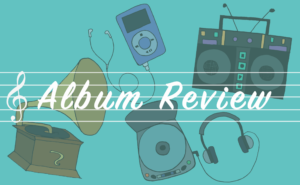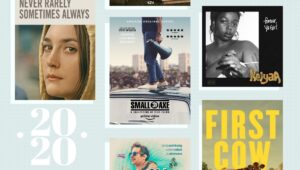Adele has returned bearing gifts. Her latest album, 30, is another smashing collection of musical masterpieces that strike deep into your core. The British singer’s fourth album, which is about “Divorce, babe. Divorce,” tackles emotional topics with her characteristic skill, but this time with even more brutal honesty and stirringly intimate revelations.
In a rare and treasured glimpse into the guarded inner walls of her heart—and even more meaningfully, into the circumstances of her life—Adele blends sweeping, six-minute ballads with more wonderfully genre-blending tracks to create a full and bursting new body of work. 30 is a rich soundscape of Adele’s fight to stay afloat through divorce, motherhood, and love.
Lulling strings on the first track “Strangers By Nature” hush thoughts, initiating listeners into Adele’s warm, mezzo-soprano spell now gently molded into a sweet falsetto. Elegantly stirring strings plucked from the soundtrack of a 1950s film help Adele guide the audience into the “cemetery of [her] heart.” The phrase is a perfect epithet for 30, which honors the love she once had, bids farewell, and expresses her hopes to grow past the grief. The acoustic outro of vocalizations demonstrates Adele’s mastery of conveying power and emotions within a single note. The last line, spoken in the singer’s distinctive Northern London accent, is a definitive welcome: “All right then, I’m ready.”
A perfect first glimpse into 30, the October release “Easy On Me” follows her tried-and-true formula of powerful piano ballad, cresting and soaring to plead forgiveness from her son: “I had no time to choose / What I chose to do.” Mournful and apologetic, the vowels of each lyric are drawn out. From beginning to end, Adele’s heart speaks so openly, which she sustains for the rest of the album.
This vulnerability further grips listeners in the third track, “My Little Love.” For the first time, Adele lays bare the tribulations of motherhood through devastatingly intimate observations backed by thoughtful, echoey humming. If your heartstrings weren’t already taut, the recorded conversations interspersed with her singing will ensure a deeper blow. The intensely personal moments in “My Little Love” can even make one feel like an intruder, with statements like “You’re the only one who can save me” (perhaps a sentiment a little too acute, with stakes too high, lingering in the air). “I feel like you don’t love me,” says her son Angelo, innocence trickling through every hesitant word. “Do you like me?”
The six-and-a-half-minute song ends its structured verses halfway through to give ample room to a voicemail of Adele, sniffling and on the verge of tears. “I feel a bit frightened that I might feel like this a lot.” 30 is Adele’s journey through deep-seated uncertainty—but she knows that fear and despair won’t always last, that growth is an extended process, as represented by the jaunty, jazzy “Cry Your Heart Out.”
“It’ll clean your face,” sing layered vocals, repeating the title’s instructions. After a chorus of eager encouragement, she addresses emptiness and exhaustion with bolder declarations, voice gathering strength to share frank facts of her situation. “I swear I’m dead in the eyes / I have nothin’ to feel no more, I can’t even cry,” she reveals—and the distraught, withdrawn state is reflected on the album’s cover, a shying away from revealing too much on her face.
The doubled vocals whoo-ing in the background add whimsy to an otherwise deeply fraught message. “I created this storm, it’s only fair I / have to sit in this rain,” she cries, vocal acrobatics reminding listeners that the album isn’t just a record of personal events, it’s the voice of a unique talent. Drums, claps, and an organ counteract sorrow with the catharsis of a good sob.
30 isn’t just for bawling in bed; Adele also makes room for new beginnings in the stomping freedom of “Oh My God” and the playful eagerness of “Can I Get It.” The former’s whining instrumental, in tandem with more staccato keys, introduces a new attitude. Though she seems slightly uncertain about jumping into something new, the beating echoes and chants of hope are a search for release and relief. The chorus is a fantastic beast of claps and harmonized vocals, worthy of the satisfactory titular exclamation.
In the latter, Adele finds herself even more fully committed to new love than the playful recklessness of the previous track. The uptempo beat is the backing track for more whimsical whistles, but it can’t completely cover haunting instability: “I won’t make it on my own.”
“I Drink Wine” caused quite the initial stir for its bold and perfectly Adele title, but surprisingly, the song mentions wine only once. Rather, the track is a confessional curation of reflections on childhood, emotional maturation, and managing a relationship with herself and others. A soft traipse of the piano strips her down more bare than the previous pop-like tracks: she launches into questions and confusions with grit and despair. Voice memos now infuse gratitude and regret into the song, departing from the loss of faith within “My Little Love.”
The interlude in the middle of the album might be easy to overlook, but don’t: the short track includes the revered late Erroll Garner’s tinkling piano over a smooth, sultry ode to how “I dream about you / All night long.” The scene of a darkened apartment, coming home to someone beloved, is a comfort in 30, which builds to its emotional climax in the album’s final three tracks: “Hold On,” “To Be Loved,” and “Love is a Game.”
But not before a glossy diss. “Woman Like Me” relies on low, drawling rhetorical queries. Guitar strumming and a crackling vocal effect like an old record create a chill, detached goodbye to her lover. Through him, at the very least, “I saw what my heart can really do.” Lyrics of disturbance and disconnect in a conversational tone soon fade out, pushing past hurt to allow healing and transformation into the album’s last trio of songs.
“Hold On” is an echoing croon of reassurance before building in metaphoric and sonic strength. Its beginning lines warble from afar alongside gently repeating piano chords. Adele emerges to share disappointment and disorientation, but the watery lyrics of the intro intersperse with a self-instructed reminder to “let time be patient.” As the song reaches its halfway mark, percussion hammering and strings lancing with renewed vigor, Adele welcomes rebirth for herself, whenever and however it comes.
The last two tracks are sisters—not just in their identical lengths of 6:43—but in the parallel narrative they construct. “To Be Loved” is a monster that begins with the visual house motif that Adele has used in the music videos for previous singles. The errors and limitations of youth reappear once more, only she is “as lost now as I was back then.”
Loneliness and regret are stripped and concentrated in “To Be Loved,” which has intermittent piano notes tiptoeing behind the raw strength of Adele’s voice. She acknowledges her mistakes in the path of simple intent to “be loved and love at the highest count.” While the content of the lyrics does not differ so much from that of previous songs, its sheer emotion with every utterance captivates the listener: by the end, she is howling long and true, the impact a blast of pain and pleasure for the listener. “Let it be known,” indeed. Let Adele be heard.
One might think that “To Be Loved” would be the last track, with its jagged edge and utterly silent outro, but 30 leaves on a note of satisfaction and perhaps resolution. After all, with such a cinematic intro as “Strangers By Nature,” one must end accordingly. “Love is a Game” sums up what Adele has learned: love, and life, is a mess. Strings flutter like an old Hollywood film for the final time, winding back around to give Adele the final word.
The heart is a muscle, and it aches, exhausted; to engage is to become a fool and “self-inflict that pain.” She teases the sickening trap with higher backing vocals, slightly mocking and a bit jarring, as the beat builds with each increasingly exultant chorus. Claps and vocalizations amid orchestrations and a steady bass create a perfect end credits soundtrack to her life.
In her latest album, Adele generates flawless musical narratives with her powerhouse vocals and sentiments of pure emotion yet again. Yet this time, she truly did infuse her whole being into the work: doubt, remorse, insecurity, determination. No stone left unturned by the whipping winds of time and change, Adele chooses to share more than she ever has before, especially about her struggles with self-sacrificing motherhood against personal joy—the literal conversations extracted from her secluded life are a simple testament. Whether or not one has an understanding of Adele’s life, with every listen the beauty and cohesion of the album will inevitably lead to a visceral response—of adoration, gratitude, or commiseration—to her artistry. The effect is flooring, and the album cannot (and perhaps should not) act as background noise or receive a gloss-over, what with its searing mother-son dilemmas and piercing self-critiques. With the good and the bad, one must immerse oneself fully under the overwhelming tide of 30. But you’ll make it out, and Adele knows the only way how: “I’d do it all again like I did then.”
Voice’s Choices: Easy On Me, My Little Love, Cry Your Heart Out, Love is a Game





